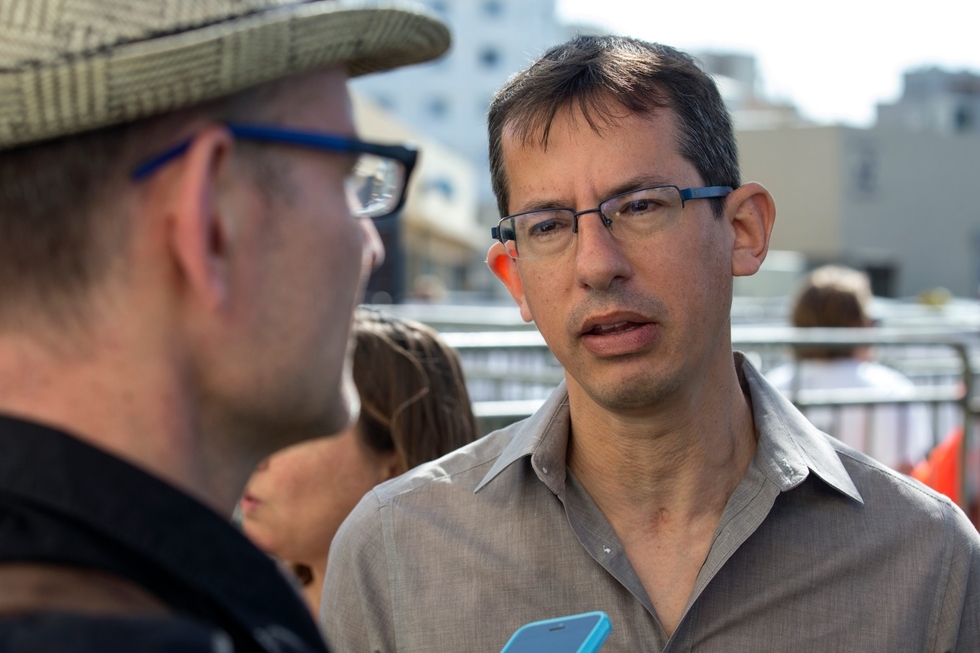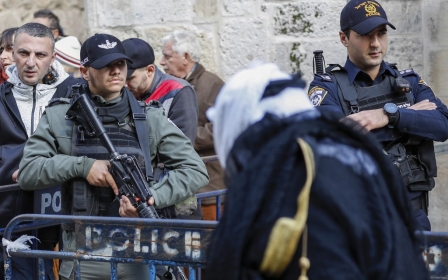Israel bans schools from hosting rights groups critical of occupation

Israel’s Education Minister Yoav Gallant has issued a general order to bar schools from hosting organisations that treat Israeli soldiers “contemptuously and call Israel an apartheid state”.
Gallant’s announcement came after complaints by Likud members in the Knesset against Hagai El-Ad, the director of the human rights group B’Tselem, who was scheduled to give a Zoom talk to students in a school in Haifa.
Gallant's directive said that organisations calling Israel "false and derogatory names,” or calling Israel an "'apartheid state' will not be allowed entry to educational institutions in Israel”.
He based his order on a law passed in 2018 that intended to bar an Israeli group of former soldiers, Breaking the Silence, from visiting schools and talking about Israeli military abuses of human rights in the occupied West Bank and East Jerusalem.
But despite the order, issued on Sunday, El-Ad on Monday gave the scheduled lecture to students in the Hebrew Reali School in Haifa, according to Kan news.
Haaretz also reported that the school had invited Nave Dromi, a right-wing columnist, and two Israeli lawyers, to join El-Ad during the lecture about Israeli military occupation of the West Bank.
The school said in a statement that it believes in “pluralism, freedom of expression and freedom of opinion. For many years we’ve exposed our students to a broad variety of opinions from across Israel’s political spectrum.”
B’Tselem has frequently called Israel an apartheid state and exposed its violations against Palestinians, and documented home demolitions, land seizures and settlement expansion, among other issues.
Last week, Al-Ed wrote an op-ed in The Guardian saying: “Calling things by their proper name – apartheid – is not a moment of despair: rather, it is a moment of moral clarity, a step on a long walk inspired by hope.”
The rights group issued a report last week that said Israel was an apartheid state from the Jordan River to the Mediterranean Sea, arguing that Israelis had the same political rights and had access to the same state services regardless of whether they lived within Israel's borders or in the occupied territories. Palestinians were denied these rights, it said.
In an eight-page report, B’Tselem described all of present-day Israel and the occupied Palestinian territories as being organised “under a single principle: advancing and cementing the supremacy of one group - Jews - over another - Palestinians.
“By geographically, demographically and physically engineering space, the regime enables Jews to live in a contiguous area with full rights, including self-determination, while Palestinians live in separate units and enjoy fewer rights.
“This qualifies as an apartheid regime, although Israel is commonly viewed as a democracy upholding a temporary occupation,” the report stated
The Adalah legal centre has called the Israeli education ministry to overturn its decision on Al-Ed.
“[The] education minister has no legal authority to prevent human rights organizations from meeting with students simply because they have criticized the definition of Israel as a Jewish Zionist state, or the continuation of the Israeli military occupation of the occupied Palestinian territory, or because they portray the Israeli state as an apartheid regime,” Adalah said in a statement.
Middle East Eye propose une couverture et une analyse indépendantes et incomparables du Moyen-Orient, de l’Afrique du Nord et d’autres régions du monde. Pour en savoir plus sur la reprise de ce contenu et les frais qui s’appliquent, veuillez remplir ce formulaire [en anglais]. Pour en savoir plus sur MEE, cliquez ici [en anglais].





